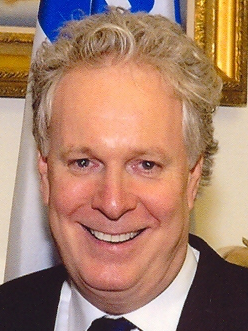
Introduction
Jean Charest, a prominent figure in Canadian politics, has played a significant role in shaping the province of Quebec and its political landscape. His tenure as the 29th Premier of Quebec from 2003 to 2012 was marked by a variety of significant policies and reforms that sought to modernize the province’s economy and social structures. With the recent resurgence of interest in provincial politics, particularly in the context of the upcoming elections, it is essential to reflect on Charest’s contributions and how they continue to influence current political discourse.
Political Career Overview
Jean Charest began his political career with the Progressive Conservative Party of Canada, serving as a Member of Parliament (MP) from 1984 to 1993. His early career laid the groundwork for his later success in provincial politics. In 1998, he took on the leadership of the Quebec Liberal Party, which revitalized the party after years of political struggle.
As Premier, Charest’s government focused on fiscal responsibility and economic reforms. He aimed to reduce Quebec’s deficit and promote job creation through significant investments in infrastructure. Initiatives such as the Plan Nord sought to foster economic development in the northern regions of Quebec, emphasizing resource extraction and sustainable development.
Controversies and Challenges
Despite his achievements, Charest’s government faced several controversies, including protests against tuition hikes and allegations of corruption within the provincial political sphere. The *Maple Spring* protests in 2012 drew significant public attention, highlighting social issues related to education and equality that judged his administration’s policies. Although this unrest ultimately led to his electoral defeat, it shaped a new wave of activism among young Quebecers.
Current Relevance
In recent years, Charest has remained active in political discussions, particularly regarding the future of Quebec’s economy and its relationship with the federal government. He is often consulted as an expert and commentator on various issues such as healthcare, education, and environmental policies. As Quebec gears up for its next election cycle, Charest’s insights will likely influence the platforms of candidates across the political landscape.
Conclusion
Jean Charest’s legacy is a complex interweaving of accomplishments and challenges that continue to resonate in Quebec politics today. With mounting issues such as climate change, economic recovery post-COVID, and social justice, examining Charest’s strategies and outcomes offers valuable lessons for current and future leaders. As the province prepares for its electoral battles, Charest’s role as a statesman and his commitment to Quebec’s progress remind citizens of the ongoing importance of civic engagement and political accountability.



